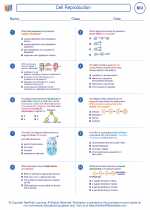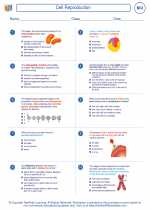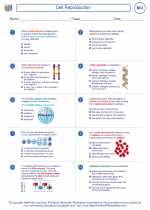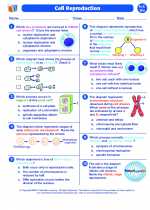Autophagy
Autophagy is a fundamental cellular process that involves the degradation and recycling of cellular components. The term "autophagy" is derived from the Greek words "auto," meaning self, and "phagy," meaning eating. This process helps maintain cellular homeostasis by removing damaged organelles, protein aggregates, and other unwanted cellular components. It plays a crucial role in various physiological processes, including cell survival, development, and the body's response to stress.
Mechanism of Autophagy
The process of autophagy involves several key steps:
- Initiation: Autophagy is initiated in response to various signals, such as nutrient deprivation, oxidative stress, or the presence of damaged organelles. This initiation phase involves the activation of specific signaling pathways and the formation of a specialized membrane structure known as the phagophore.
- Phagophore Elongation: The phagophore expands and elongates to form a double-membrane structure called the autophagosome. This process involves the recruitment of proteins and lipids to the growing autophagosome membrane.
- Sequestration: The autophagosome engulfs the targeted cellular components, such as damaged organelles or protein aggregates, within its double membrane.
- Lysosomal Fusion: The autophagosome fuses with a lysosome, forming an autolysosome. The lysosomal enzymes within the autolysosome degrade the sequestered contents, releasing the breakdown products for recycling.
- Recycling: The breakdown products, such as amino acids and lipids, are released from the autolysosome and can be used by the cell to synthesize new cellular components.
Regulation of Autophagy
Autophagy is tightly regulated by a network of signaling pathways and molecular regulators. Key regulators of autophagy include the mTOR (mechanistic target of rapamycin) pathway, AMPK (AMP-activated protein kinase), and various autophagy-related (ATG) proteins. These regulators integrate signals from the cellular environment to modulate the initiation and progression of autophagy.
Physiological and Pathological Roles of Autophagy
Autophagy plays essential roles in maintaining cellular homeostasis and responding to various physiological and pathological conditions. It is involved in:
- Cellular adaptation to nutrient deprivation
- Quality control and turnover of organelles, such as mitochondria (mitophagy)
- Clearance of protein aggregates (aggrephagy)
- Immune response and antigen presentation
- Tumor suppression
- Neuroprotection
- Aging and longevity
Study Guide for Autophagy
When studying autophagy, it's essential to understand the molecular mechanisms, regulation, and the physiological and pathological roles of this process. Here are some key points to focus on:
- Describe the key steps involved in the process of autophagy, from initiation to recycling.
- Explain the regulatory pathways and molecular regulators that control autophagy, including the roles of mTOR, AMPK, and ATG proteins.
- Discuss the physiological roles of autophagy in maintaining cellular homeostasis and responding to stress and nutrient deprivation.
- Explore the pathological implications of dysregulated autophagy, such as its involvement in neurodegenerative diseases, cancer, and metabolic disorders.
- Consider the therapeutic implications of modulating autophagy for the treatment of various diseases.
Understanding autophagy is crucial for comprehending the intricate mechanisms of cellular maintenance and its relevance to human health and disease.
.◂Biology Worksheets and Study Guides High School. Cell Reproduction

 Worksheet/Answer key
Worksheet/Answer key
 Worksheet/Answer key
Worksheet/Answer key
 Worksheet/Answer key
Worksheet/Answer key
